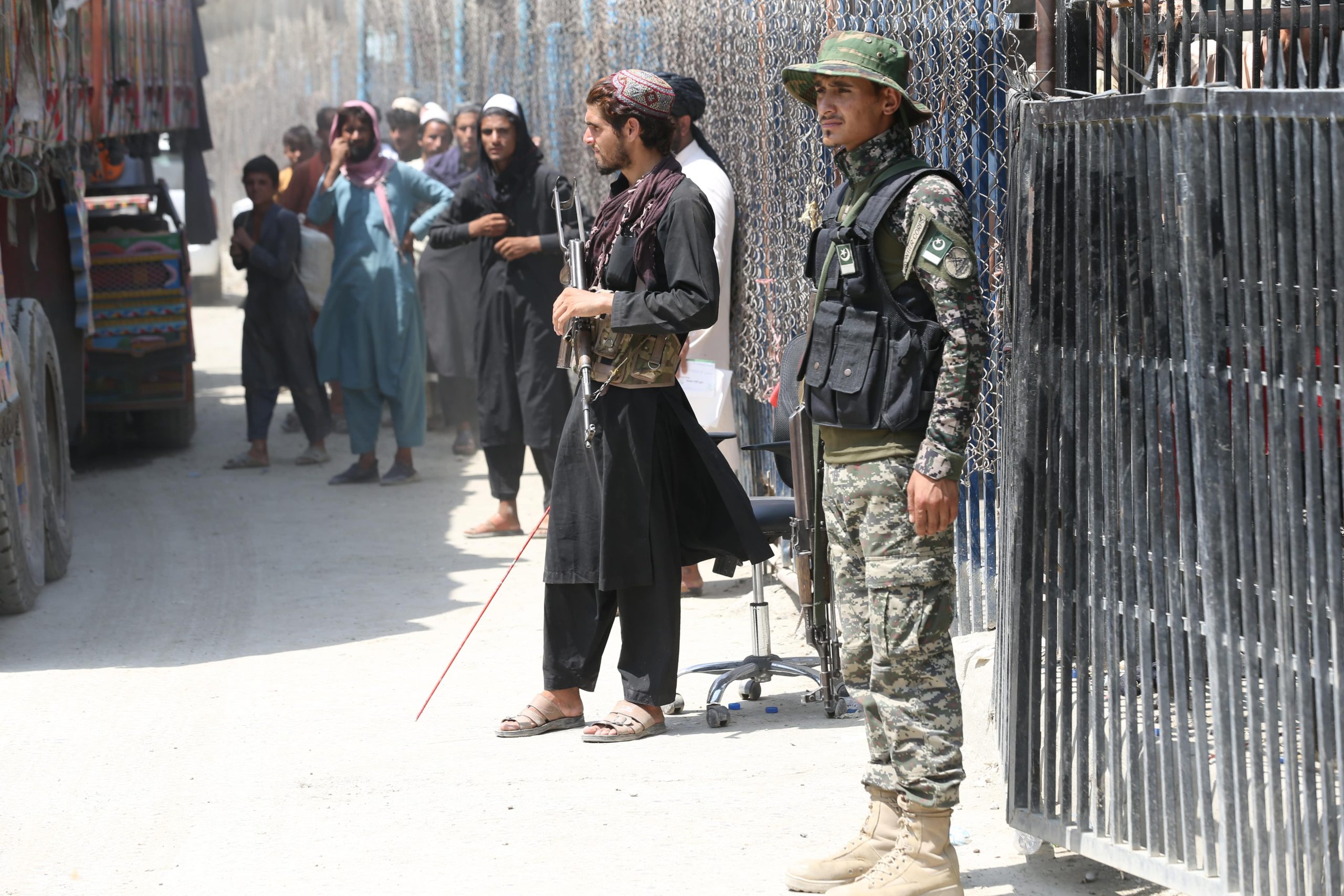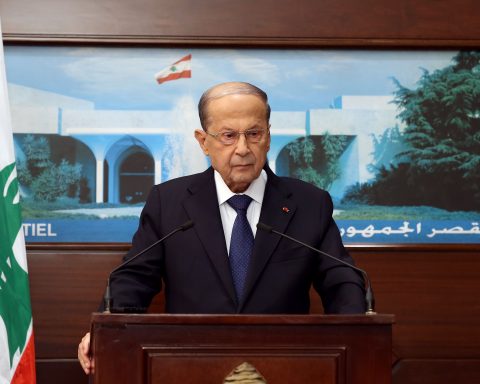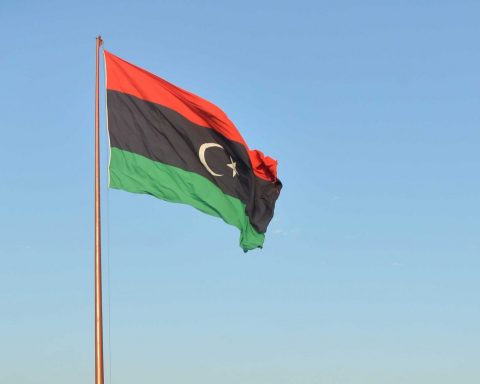Pakistan enjoyed only a brief period of five years of friendly relations with Afghanistan. It was during the first Taliban rule from 1996 to 2001 in Kabul. Otherwise, Islamabad has mostly faced hostility at its north-western border. Afghanistan has also been refusing to recognize the Durand Line as the international border between the two countries. Moreover, Afghan claims over large swathes of territory in Pashtun areas of Pakistan have long been the cause of great concern for Pakistan. There are more than twice as many Pashtuns in Pakistan as in Afghanistan. So, managing Afghanistan’s policy has been Pakistan’s key concern as Pashtuns make up half of Afghanistan’s 30 million population. Tensions between the two neighbors escalated with the War in Afghanistan (1978–present), millions of Afghan refugees seeking shelter in Pakistan then, the dispute over water rights, and Afghanistan’s deepening relations with India.
Relations with the Taliban
The Taliban group was formed in the early 1990s by Afghan mujahideen or Islamic warriors, mostly Pashtuns, who studied in Pakistani madrasas or seminaries. The Taliban is Pashto for “students.” Pakistan’s military and intelligence agency (ISI) played a key role in establishing this group and has maintained considerable influence over the group until today. Pakistan has long been trying to implement a policy of “strategic depth” towards Afghanistan. Pakistan’s support was instrumental in the Mujahideen’s victory against the Soviet Union. Former Pakistani Prime Minister Nawaz Sharif went to Kabul in 1992 after the fall of the Soviet-backed Mohammad Najibullah government. He was the only world leader to do so. Then in 1996, Pakistan was the first country to recognize the Taliban government; the other two later being the UAE and Saudi Arabia.
Unlike in 1989, when the Mujahideen evicted the Soviet Union, and in 1996, when the Taliban won most of Afghanistan, including capital Kabul, Pakistan this time pragmatically avoided triumphalism after the takeover of Kabul by the Taliban. To make the Afghan issue a low profile, Pakistan employed a newly minted rhetoric and shifted its focus to geo-economics.
To display neutrality and dispel concerns among Americans, Europeans, and Indians, Pakistan tried to push a narrative that it has abandoned the decades-long policy of pushing for “strategic depth” and that Pakistan has no favorite in Afghanistan and will deal with anyone who governs there. However, in reality, Pakistan’s policy towards the Taliban in Afghanistan has not changed at all from its previous position. On this trajectory, Pakistan’s foreign office stated on September 16 that the country would make an independent decision on recognizing the Afghan Taliban government in line with its national interests. Pakistan has been saying that it will follow the other nations in recognizing the Taliban. Since the Taliban takeover, Pakistan has been urging the international community to adopt a pragmatic approach, maintaining that the Afghan Taliban were a new reality and hence it would be wise to work with them.
The Pakistan Foreign Office statement came after US Secretary of State Antony Blinken’s testimony before Congress, where he stated that “Pakistan needs to line up with a broad majority of the international community in working toward those ends and in upholding those expectations.” Pakistani Prime Minister Imran Khan called such comments “ignorant.” It is pretty clear that Pakistan will seize the opportunity after the end of twenty years of the US occupation of Afghanistan and will increase its influence in its neighborhood.
Future relations
Having a pro-Pakistan government across the border in Afghanistan has long been the key objective of Pakistan’s foreign policy. Now that the Taliban are in full control of Afghanistan, Pakistan has started a drive to develop an international consensus that would lead to recognition of the “Islamic Emirate of Afghanistan.” Pakistan is patiently waiting for the US and other western countries to recognize the Taliban government rather than rushing to recognize it first.
Whether it is an age-old policy of “strategic depth” or a new policy of “geo-economics”, Pakistan’s core objective is to neutralize Indian influence in its backyard through a friendly government. It also wants to close down the activities of groups like Tehreek-e-Taliban Pakistan (TTP) and Baloch insurgents who are operating from Afghan soil.
Some Pakistani experts have also floated the idea of the creation of a new regional organization comprising Pakistan, Afghanistan, China, Iran, and the five Central Asian states to improve Pakistan’s political and economic ties with Afghanistan and the Central Asian states. Islamabad is seriously looking to Afghanistan and Central Asia for its economic development as its relations with India are at their lowest ebb. Pakistani policymakers are eyeing Afghanistan’s transit route for economic development projects such as the Central Asia-South Asia power project (CASA-1000) to supply surplus hydroelectricity from Kyrgyzstan and Tajikistan to Afghanistan and Pakistan. The Turkmenistan-Afghanistan-Pakistan–India (TAPI) gas pipeline project is also of high importance for Pakistan to get cheap Turkmenistan gas via Afghanistan. Energy-deficient Pakistan would like this pipeline to be completed even without Indian participation.
Likewise, Pakistan is looking for the China Pakistan Economic Corridor (CPEC) to connect with Central Asia through Afghanistan. Three Central Asian states Tajikistan, Uzbekistan, and Turkmenistan have land borders with Afghanistan. Peace and stability in Afghanistan are keys for the implementation of the CPEC and creating linkages with Central Asia. Thus, the CPEC will not only benefit Pakistan, but it will also present abundant opportunities for landlocked Afghanistan and Central Asian states to transport their goods more easily and gain a competitive edge in regional and global markets.
Peace, stability, and diplomacy
During the two decades of occupation of Afghanistan, Americans have created countless deeply entrenched and widely scattered assets inside Afghanistan to be used against the Taliban government whenever required. Therefore, stabilizing Afghanistan will be a tremendously important task for the Taliban and Pakistan. On the one hand, a more representative Afghanistan will be more prone to foreign interference. An inclusive government, which has representation from all ethnic groups, is crucial for long-term stability in the country. Pakistan knows that the Taliban now have a much tougher task in hand to stabilize Afghanistan after getting full control of the country by controlling remaining pockets of resistance like some still present in the Panjshir Valley.
Afghanistan’s economy was in the doldrums even before the Taliban takeover of the country as 75% of the country’s budget used to come from foreign aid and now foreign currency assets have been frozen by the US and Europeans. It has made things difficult to run the country. Unlike the Americans, the Europeans are more concerned about the new wave of refugee influx if Afghanistan descends into chaos. That’s why foreign ministers of key European countries have been visiting Pakistan to discuss and assess the situation in Afghanistan. Pakistan has now become a key conduit for dealings with the Taliban. Pakistan is therefore pressing the Europeans to negotiate a diplomatic solution with the Taliban government rather than rejecting them once more.














